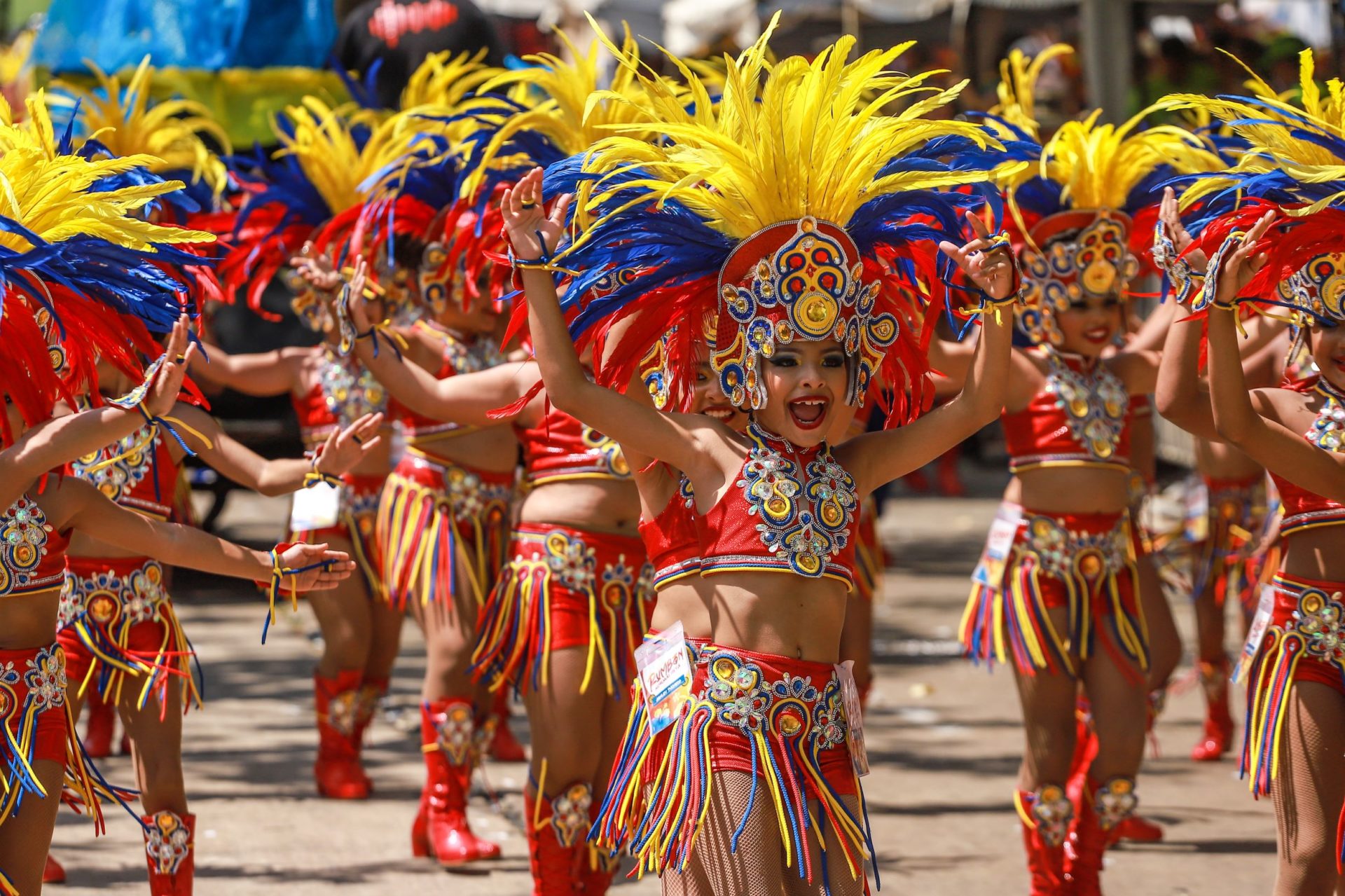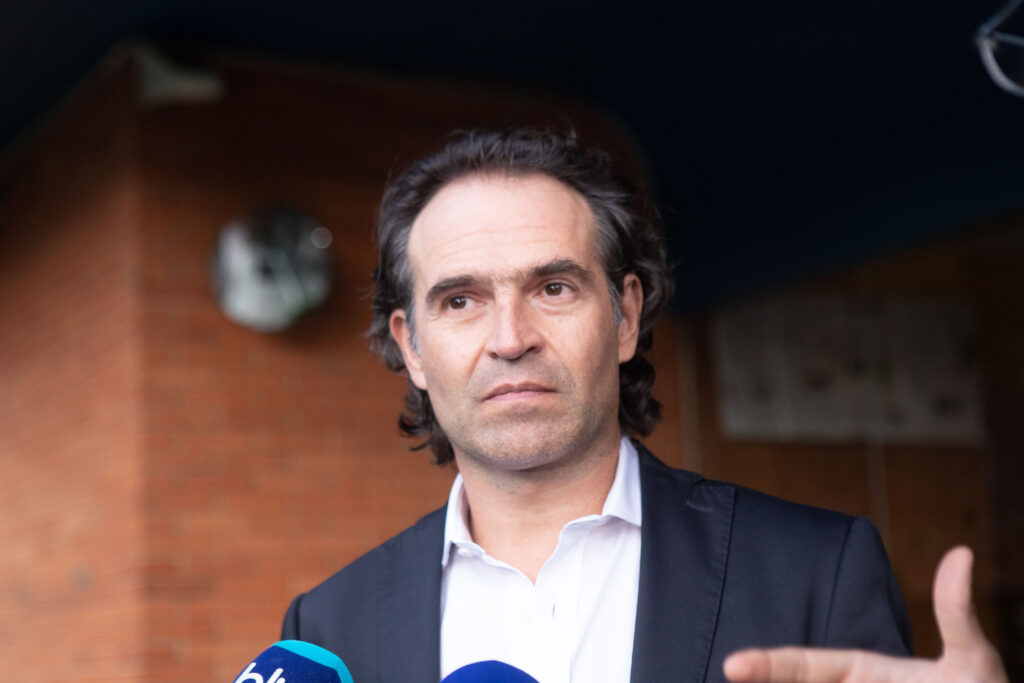Miranda Torres, aged 11, and Isaac Rodríguez, aged 10, were Queen and King of this year’s Children’s Carnival (Carnaval de los Niños) in Barranquilla, Colombia.
Their televised coronation consisted of an hour-long performance featuring nearly 500 young dancers and over a dozen folkloric dance troupes, which took place the weekend before the main carnival celebrations.

Much like their adult counterparts, the children’s duties begin long before carnival weekend. They have an agenda of events to attend, which begins up to four months before carnival starts. It includes official visits to schools, hospitals, community organizations, prisons, and some of the poorer neighborhoods of the city to give speeches.
Rehearsals for the coronation performance also begin nearly two months beforehand, starting on weekends and ending with a full-time rehearsal schedule which requires the young participants to take time away from their studies.
Child stars Torres and Rodríguez have over 37,000 Instagram followers between them, and attend media interviews like professionals, offering to take photos with fans wherever they go.
A lot of stress for a child? You would think so.
In certain cases, childhood fame can result in lasting psychological damage, which may affect later lifestyle decisions.
However, for these kids of Barranquilla’s carnival, the situation is different.
“Barranquilla Carnival is part of our historical and cultural patrimony,” Jimena Salazar, a research lecturer in psychology at Medellin’s CES University told Latin America Reports.
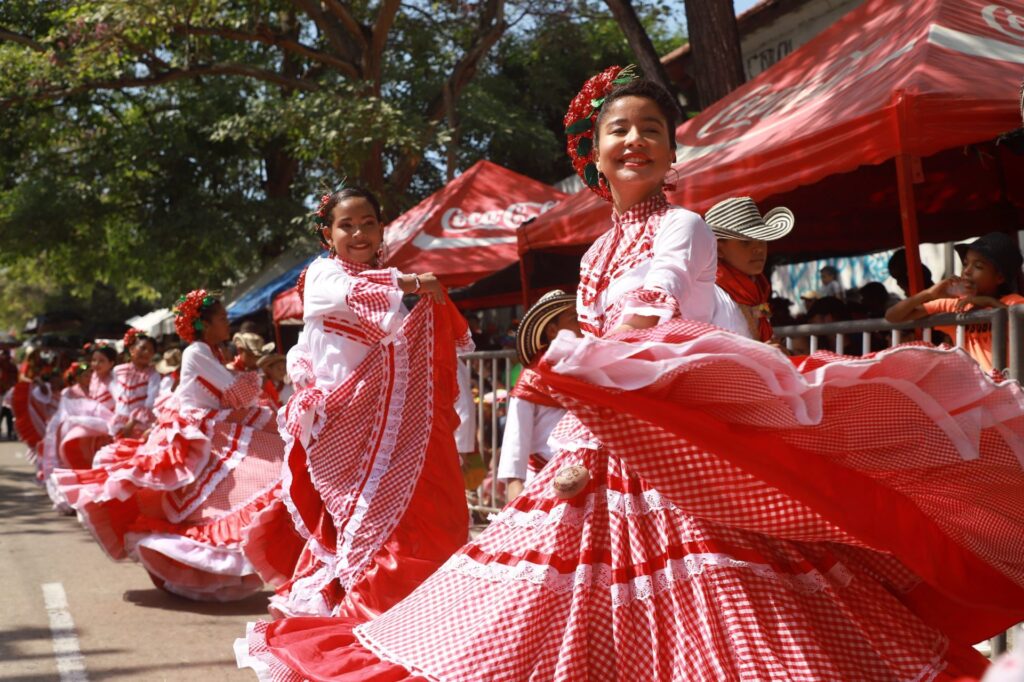
“For the people who live in the Atlantic region, being part of carnival is a chance to confirm their roots and build their identity,” she added, explaining the importance of carnival for those native to the city of Barranquilla.
The annual folkloric celebration — whose origins date back to the 19th century — takes place towards the end of February and sometimes into the beginning of March. It is the second-largest carnival in the world, drawing in approximately 500,000 visitors to the Colombian coastal city each year.
In 2003, UNESCO named the celebration one of the Masterpieces of the Oral and Intangible Heritage of Humanity, recognizing it as an essential component of cultural diversity.
Officially launched in 1990, Barranquilla’s Children’s Carnival is 30 years old this year.
“It’s not like beauty pageants, where the only quality valued is who is the prettiest,” said Salazar, emphasizing the social impact of the role as king or queen.
Cristina Amortegui, the queen of Children’s Carnival in 2013, the same year as Barranquilla’s 200 year anniversary, described the event as a “source of pride.” “For us, carnival is the most important and most symbolic thing that exists, so for me it was an honor to have marked the history of my city,” she said.

Amortegui, now aged 20, remembers the experience with fondness and joy, claiming it to have been one of the best of her life. Her favorite part, she said, was the build-up to the carnival itself, when she and her partner, reyecito Daniel Silguero, visited the underprivileged neighborhoods around the city and shared their slice of carnival culture with them.
“Carnival is a passion that’s firmly in my heart,” added Amortegui, explaining how she stopped going to school as soon as she was chosen to be queen of Children’s Carnival, four months before carnival took place.
“It’s not something that makes you suffer,” she said, explaining that despite the fatigue and exhaustion of the experience, she never once felt like it was too difficult. Amortegui relied on the help of her school — who allowed her to complete special exams and take part in workshops to catch up on missed content — to get her through.
For psychologist Salazar, what is important for maintaining normality and emotional support for the children at this time, are their parents.
“How a child manages the situation depends on how the adults support them,” she explained.
For 10-year-old Isaac Rodríguez, who has just experienced what it’s like to be king of Children’s Carnival, support from his parents was vital.
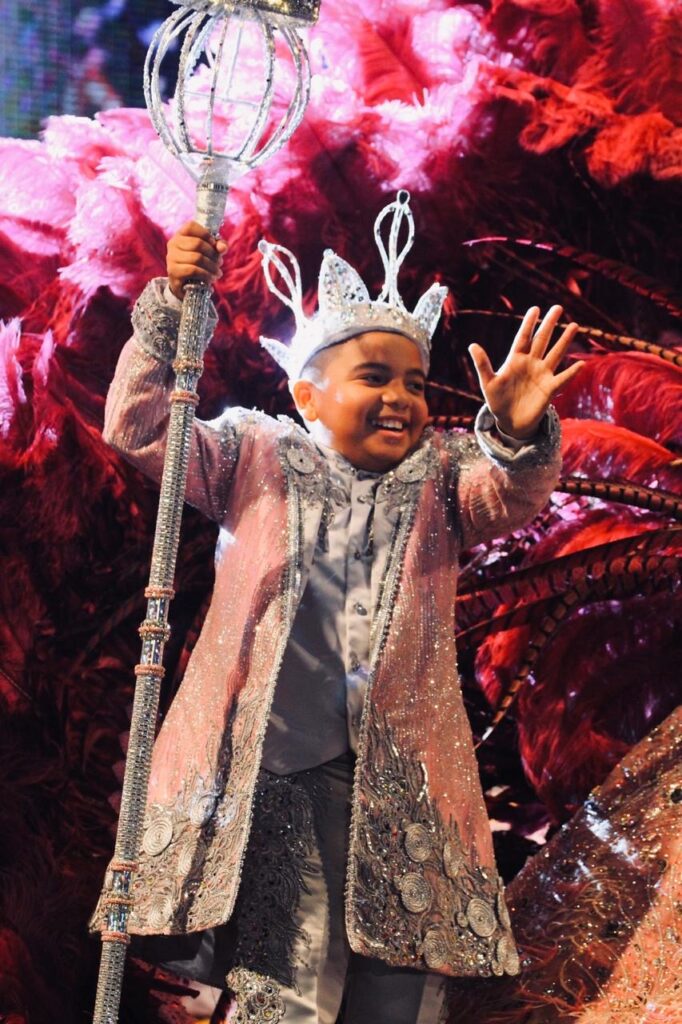
“They were with me every step of the way, in the events, in all the tours,” he said. “I adore them.”
“If you do everything with love, there are no difficult bits, and there will be no obstacles in your path,” added Rodríguez, whose favorite part of the carnival celebration was the coronation ceremony. “It was a dream to take part,” he added.
For Rodríguez, another important source of support throughout the experience was the Voz Infantil foundation, responsible for the original founding Barranquilla Children’s Carnival.
Julio Adán Hernández, founder of Voz Infantil, said that his objective was to open up a space specifically for children in carnival where they can be the protagonists.
However, psychologist Salazar, — who believes the support from a parent can help when dealing with the stress of the media — highlights a potential danger that could come to thwart this type of process.
“Often, the adults want this role for their children,” she said.
“Sometimes, parents seek their own recognition through the behavior of their own children,” Salazar added, explaining that this could potentially upset the harmony of the child’s development.
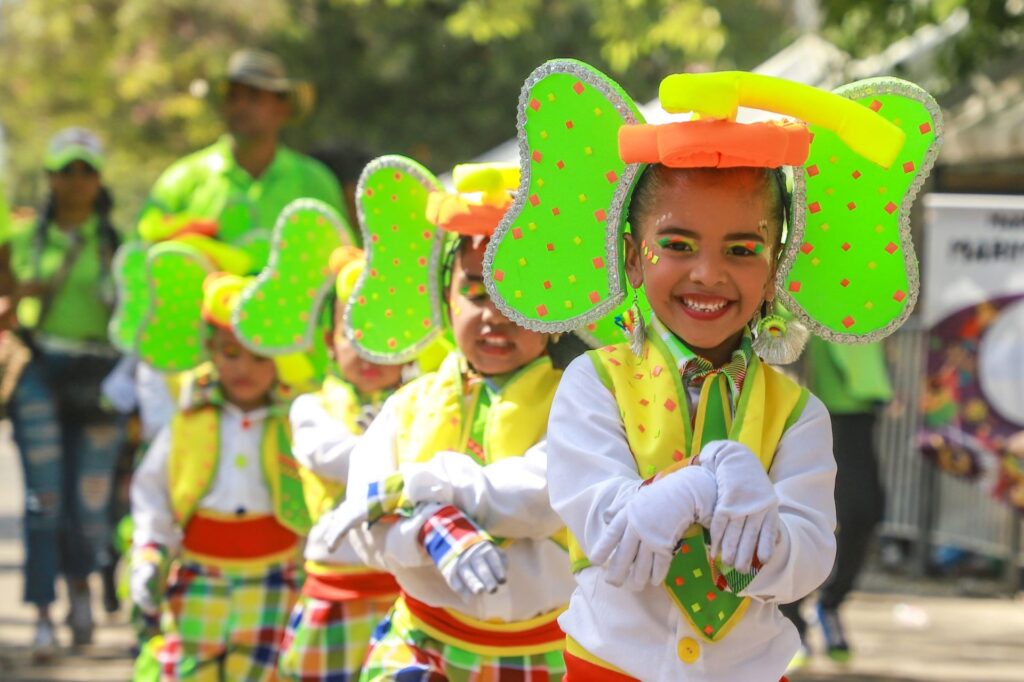
Emotionally-charged events can also generate negative feelings such as sadness, she explained, which can lead to sadness, fear of social exposure, difficulty in interpersonal relationships and academic de-motivation.
Thankfully, however, for both Amortegui and Rodríguez, their experience was far from negative.
And for Amortegui, it went on to shape the rest of her life.
“After being queen of Children’s Carnival, I never strayed away from carnival again,” she said, explaining how she went on to present the televised transmission of the children’s parade nine years in a row. Having studied journalism and social communication, she continues to work as a community manager for Barranquilla Carnival to this day.
“Being an actor [for example] implies being recognized for just one skill, which isn’t connected to a cultural tradition,” said psychologist Salazar.
Whereas, she explained, the culture behind Barranquilla Carnival gives the role of king and queen a meaning, which justifies the recognition these children receive at such a young age.


